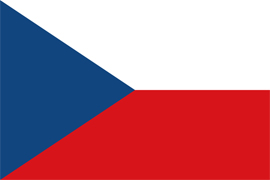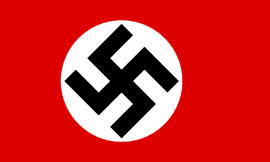 In the best traditions of characters played by Jean Arthur and Barbara Stanwyck in 1930s films, Ros is a woman who is not afraid of playing hardball working in a typically male profession. Looking for a ticket out of the fashion pages and into the big leagues of foreign correspondents, she has made it to Europe just in time to cover the decade’s biggest crisis for the Consolidated News Service.
In the best traditions of characters played by Jean Arthur and Barbara Stanwyck in 1930s films, Ros is a woman who is not afraid of playing hardball working in a typically male profession. Looking for a ticket out of the fashion pages and into the big leagues of foreign correspondents, she has made it to Europe just in time to cover the decade’s biggest crisis for the Consolidated News Service.
 The Nazis took his father and later they came for Anton Krisch. Being the son of a prominent trade unionist was his ticket into the Esterwegen concentration camp reserved for leftist activists considered a threat to the Third Reich. But life in the camp molded Krisch into something much more dangerous – a man hardened against fear who is ready to risk everything to liberate his comrades and Germany.
The Nazis took his father and later they came for Anton Krisch. Being the son of a prominent trade unionist was his ticket into the Esterwegen concentration camp reserved for leftist activists considered a threat to the Third Reich. But life in the camp molded Krisch into something much more dangerous – a man hardened against fear who is ready to risk everything to liberate his comrades and Germany.
 As a senior-level operative in Czechoslovak military intelligence, also known as the Second Department, Jan Burda has been fighting a secret war with Germany for years. Quashing an ethnic German rebellion on Bohemian soil and playing the counter-espionage game with Berlin is all part of the job… and Burda is very good at his work. Yet staying cool under pressure gets harder with time with the knowledge that around the next dark corner may wait an enemy ambush team ready to take Burda fatally out of the game like so many of his comrades.
As a senior-level operative in Czechoslovak military intelligence, also known as the Second Department, Jan Burda has been fighting a secret war with Germany for years. Quashing an ethnic German rebellion on Bohemian soil and playing the counter-espionage game with Berlin is all part of the job… and Burda is very good at his work. Yet staying cool under pressure gets harder with time with the knowledge that around the next dark corner may wait an enemy ambush team ready to take Burda fatally out of the game like so many of his comrades.
 Duty, honor, country were not what Nathan Bulloch was all about. To the son of a poor California orange grower, a surprise nomination to West Point was a ticket out to the bright lights of big cities. After graduation he set his sights on becoming a military attaché when most of his peers sought after combat commands. Bulloch definitely wanted to see the world but saw little reason in getting killed doing so. Never intending to be a hero, Bulloch is assigned to the U.S. embassy in Prague just as circumstances demand otherwise.
Duty, honor, country were not what Nathan Bulloch was all about. To the son of a poor California orange grower, a surprise nomination to West Point was a ticket out to the bright lights of big cities. After graduation he set his sights on becoming a military attaché when most of his peers sought after combat commands. Bulloch definitely wanted to see the world but saw little reason in getting killed doing so. Never intending to be a hero, Bulloch is assigned to the U.S. embassy in Prague just as circumstances demand otherwise.
 His family may have been new gentry yet they still frowned on Robin Sanderson ignoring the fruits of his Eton and Cambridge education for the frivolous choice of going overseas to become a foreign correspondent. He did not consider himself much of a rebel, but being a reporter for the Daily Telegraph was definitely exciting and gave him a chance to apply all of that history that had been crammed into his head for years. But what really drew Sanderson to the job was the rush that came with chasing after the truth from those who tried to hide the facts under the barrel of a gun.
His family may have been new gentry yet they still frowned on Robin Sanderson ignoring the fruits of his Eton and Cambridge education for the frivolous choice of going overseas to become a foreign correspondent. He did not consider himself much of a rebel, but being a reporter for the Daily Telegraph was definitely exciting and gave him a chance to apply all of that history that had been crammed into his head for years. But what really drew Sanderson to the job was the rush that came with chasing after the truth from those who tried to hide the facts under the barrel of a gun.
 The Great Depression was cruel to Morgen’s family. They lost everything when his father’s job as a clerk ended with the failure of the bank he worked for. Morgen was determined to fight for the share of a good life that was stolen from him by finding a home in the Nazi Party’s paramilitary wing, the Sturmabteilung (SA). A veteran of hundreds of street brawls with trade unionists in Hamburg, Morgen was a deadly instrument in the remaking of Germany into a Nazi state. When the SA fell out of favor with Hitler in 1934, Morgen transferred to the Schutzstaffel (SS) to carry on his violent work.
The Great Depression was cruel to Morgen’s family. They lost everything when his father’s job as a clerk ended with the failure of the bank he worked for. Morgen was determined to fight for the share of a good life that was stolen from him by finding a home in the Nazi Party’s paramilitary wing, the Sturmabteilung (SA). A veteran of hundreds of street brawls with trade unionists in Hamburg, Morgen was a deadly instrument in the remaking of Germany into a Nazi state. When the SA fell out of favor with Hitler in 1934, Morgen transferred to the Schutzstaffel (SS) to carry on his violent work.
 Like a lot of women in the Lone Star State no one was going to tell Sylvie Anderson what she couldn’t do. That kind of determination is how she ended up with her byline from such places as Mukden, Shanghai, Madrid, and Vienna. Now this Associated Press correspondent is covering the biggest show of them all, the Sudetenland Crisis. Anderson has dodged bullets in shooting wars before to get the story, and she doesn’t see why this Central European fracas should be any different.
Like a lot of women in the Lone Star State no one was going to tell Sylvie Anderson what she couldn’t do. That kind of determination is how she ended up with her byline from such places as Mukden, Shanghai, Madrid, and Vienna. Now this Associated Press correspondent is covering the biggest show of them all, the Sudetenland Crisis. Anderson has dodged bullets in shooting wars before to get the story, and she doesn’t see why this Central European fracas should be any different.
 Compared to his partner, Stefan Furst is the tightly coiled muscle of the team with a pronounced mean streak when it comes to the enemies of Czechoslovakia. Like most of the officers recruited to the Second Department, Furst is capable, adaptable and reliable without strong family ties to hinder his military intelligence duties. What the job gave Furst was an escape from the tedium of peacetime service in the army. Dealing with the restive ethnic German communities in Bohemia has its dangers and thrills, but after the Nazis take power in Germany during 1933, the competition between the spy services of both nations takes a deadly turn that pushes Furst to his limits.
Compared to his partner, Stefan Furst is the tightly coiled muscle of the team with a pronounced mean streak when it comes to the enemies of Czechoslovakia. Like most of the officers recruited to the Second Department, Furst is capable, adaptable and reliable without strong family ties to hinder his military intelligence duties. What the job gave Furst was an escape from the tedium of peacetime service in the army. Dealing with the restive ethnic German communities in Bohemia has its dangers and thrills, but after the Nazis take power in Germany during 1933, the competition between the spy services of both nations takes a deadly turn that pushes Furst to his limits.
 Most people in the news business consider the mercurial managing partner of the Consolidated News Service to be a certifiable fruitcake. Most of Harry Lasky’s employees have other names for him but those cannot be printed in mainstream news outlets. As news syndicates go, CNS is far behind the AP, UP, Agence Havas, Hearst International News and Reuters in everything from bureaus to subscribing newspapers. Yet what Lasky lacks in scale he makes up for in raw determination to outdo his competitors. Once a hard-charging reporter and editor himself, no other syndicate owner pushes their people harder, or squeezes a nickel further, than Lasky.
Most people in the news business consider the mercurial managing partner of the Consolidated News Service to be a certifiable fruitcake. Most of Harry Lasky’s employees have other names for him but those cannot be printed in mainstream news outlets. As news syndicates go, CNS is far behind the AP, UP, Agence Havas, Hearst International News and Reuters in everything from bureaus to subscribing newspapers. Yet what Lasky lacks in scale he makes up for in raw determination to outdo his competitors. Once a hard-charging reporter and editor himself, no other syndicate owner pushes their people harder, or squeezes a nickel further, than Lasky.
 Unlike the aristocratic families that produced most career officers, Ladislaw Capka came from much humbler origins. In the rural community he grew up in firm directness was what counted not the effete charm employed by the upper classes. Social stratification was just one more obstacle for Capka to bull through on his way to a coveted spot at the military academy in Hranice. With a dangerous dictatorship next door in Germany and a long border to defend there is plenty of opportunity for advancement in the growing Czechoslovak Army. Unafraid of sharply questioning the status quo around him, Capka is recognized as having a gifted grasp of battlefield tactics and rises through the ranks swiftly. If war comes he wants to do more than hold the line against the Nazis, Capka is determined to take the fight into Germany.
Unlike the aristocratic families that produced most career officers, Ladislaw Capka came from much humbler origins. In the rural community he grew up in firm directness was what counted not the effete charm employed by the upper classes. Social stratification was just one more obstacle for Capka to bull through on his way to a coveted spot at the military academy in Hranice. With a dangerous dictatorship next door in Germany and a long border to defend there is plenty of opportunity for advancement in the growing Czechoslovak Army. Unafraid of sharply questioning the status quo around him, Capka is recognized as having a gifted grasp of battlefield tactics and rises through the ranks swiftly. If war comes he wants to do more than hold the line against the Nazis, Capka is determined to take the fight into Germany.
 In many ways the war never ended for Einhardt Heiden in 1918. The young infantry officer was convalesing in a hospital when the armistice with the allies was signed. Released from service after his wounds had heeled, there were no jobs for common veterans like him so he joined up as a volunteer Freikorps kommando to put down the Polish uprisings in Upper Silesia during 1919. Preferring a conservative autocratic government to the Weimar Republic, the following year Heiden marched on Berlin in the failed Kapp Putsch. For the next 10 years he spent time with several shadowy paramilitary groups and flirted with a number of right-wing political parties, including the Nazis. It was Heiden’s misfortune that he sided with the Strasser Brothers who were competing with Adolph Hitler for control of the movement. He was eventually expelled from the party in 1930 as politically unreliable. Ottke was well known by other Freikorps veterans and by 1935 was recruited by Admiral Wilhelm Canaris to serve in Germany’s military intelligence division, the Abwehr. With his army commission reactivated, Heiden zealously returned to the shadows as a counter-intelligence operative.
In many ways the war never ended for Einhardt Heiden in 1918. The young infantry officer was convalesing in a hospital when the armistice with the allies was signed. Released from service after his wounds had heeled, there were no jobs for common veterans like him so he joined up as a volunteer Freikorps kommando to put down the Polish uprisings in Upper Silesia during 1919. Preferring a conservative autocratic government to the Weimar Republic, the following year Heiden marched on Berlin in the failed Kapp Putsch. For the next 10 years he spent time with several shadowy paramilitary groups and flirted with a number of right-wing political parties, including the Nazis. It was Heiden’s misfortune that he sided with the Strasser Brothers who were competing with Adolph Hitler for control of the movement. He was eventually expelled from the party in 1930 as politically unreliable. Ottke was well known by other Freikorps veterans and by 1935 was recruited by Admiral Wilhelm Canaris to serve in Germany’s military intelligence division, the Abwehr. With his army commission reactivated, Heiden zealously returned to the shadows as a counter-intelligence operative.
 From the first time he saw a Blériot monoplane as a small boy in Plzeň with his father, Ondřej Bozik vowed he too would be a pilot. The Great War had come and gone with Czechoslovakia becoming its own nation complete with a budding aeronautical industry. In the years ahead Bozik made a point to see the great Malkovsky perform wild aerobatics in his bright red Avia BH-21. When he was old enough Bozik enlisted in the army air force where he was taught flying skills at the air school at Prostějov. His instructors determined that Bozik was both a gifted pilot and possessed the sensible temperament necessary for squadron leaders. Although his first posting saw him flying the venerable Avia BH-33L, in a few years when Bozik was promoted to command of his own squadron, the much sleeker and more nimble B-534s were coming off the factory line. These were good times to be an airman and Bozik reveled in the camaraderie of his fellow pilots. But there was no dismissing the rapid rearmament taking place next door in Germany. Their fun-loving days were soon over and it was Bozik’s job to turn his charges into serious killers before war arrived.
From the first time he saw a Blériot monoplane as a small boy in Plzeň with his father, Ondřej Bozik vowed he too would be a pilot. The Great War had come and gone with Czechoslovakia becoming its own nation complete with a budding aeronautical industry. In the years ahead Bozik made a point to see the great Malkovsky perform wild aerobatics in his bright red Avia BH-21. When he was old enough Bozik enlisted in the army air force where he was taught flying skills at the air school at Prostějov. His instructors determined that Bozik was both a gifted pilot and possessed the sensible temperament necessary for squadron leaders. Although his first posting saw him flying the venerable Avia BH-33L, in a few years when Bozik was promoted to command of his own squadron, the much sleeker and more nimble B-534s were coming off the factory line. These were good times to be an airman and Bozik reveled in the camaraderie of his fellow pilots. But there was no dismissing the rapid rearmament taking place next door in Germany. Their fun-loving days were soon over and it was Bozik’s job to turn his charges into serious killers before war arrived.
 The brash, in-you-face reputation of foreign correspondents does not fit Roland Simmons. His rather unassuming demeanor obscures the fact that Roland secures more than his fair share of scoops. His competitors don’t have a clue how this mild-mannered Times of London reporter is so well connected with influential politicians and captains of industry, and Roland guards his professional secrets well. Few of his fellow correspondents even know Roland has covered hot wars first-hand such as the Gran Chaco in Latin America or the Italian invasion of Abyssinia. No matter how he manages to pull it off, Roland always seems to be in the right place at the right time.
The brash, in-you-face reputation of foreign correspondents does not fit Roland Simmons. His rather unassuming demeanor obscures the fact that Roland secures more than his fair share of scoops. His competitors don’t have a clue how this mild-mannered Times of London reporter is so well connected with influential politicians and captains of industry, and Roland guards his professional secrets well. Few of his fellow correspondents even know Roland has covered hot wars first-hand such as the Gran Chaco in Latin America or the Italian invasion of Abyssinia. No matter how he manages to pull it off, Roland always seems to be in the right place at the right time.
 There was no grand plan… Petra Vorlova just did not like being tied down. She was young with a cute apartment all to herself and attended university while working in her uncle’s hospoda. Sure, her parents sometimes argued with her – especially about her American boyfriend – but in the end Petra could do what she liked and she wanted to keep it that way. But as the crisis with Germany darkened in the summer of 1938, Petra began to see her independence in a different light. What good would all of her accomplishments be if a conquering army had its way with her country? Soon Petra was taking to the streets with her friends to protest against the Henleinists trying to tear Czechoslovakia apart.
There was no grand plan… Petra Vorlova just did not like being tied down. She was young with a cute apartment all to herself and attended university while working in her uncle’s hospoda. Sure, her parents sometimes argued with her – especially about her American boyfriend – but in the end Petra could do what she liked and she wanted to keep it that way. But as the crisis with Germany darkened in the summer of 1938, Petra began to see her independence in a different light. What good would all of her accomplishments be if a conquering army had its way with her country? Soon Petra was taking to the streets with her friends to protest against the Henleinists trying to tear Czechoslovakia apart.
 Decorated for his service with a Jäger battalion during the Great War no one could contest Baldrik Ottke’s bravery. Left unsaid was exactly how he had earned those commendations. True, Ottke was a decisive officer yet he could also be brash, reckless and disposed to taking chances. His comrades suspected it was Ottke’s way of breaking away from the influence of his severely conservative father. Regardless, he had been noticed and was one of the few officers retained in the treaty-hobbled Reichswehr after the war. The next decade saw a procession of blasé army postings that Ottke found stupefying. He was a man who found purpose in being tested and decided the best option available to him was espionage work. By 1932 Ottke had arranged to be transferred to the military’s intelligence branch, the Abwehr, just as the Nazis were vying for power.
Decorated for his service with a Jäger battalion during the Great War no one could contest Baldrik Ottke’s bravery. Left unsaid was exactly how he had earned those commendations. True, Ottke was a decisive officer yet he could also be brash, reckless and disposed to taking chances. His comrades suspected it was Ottke’s way of breaking away from the influence of his severely conservative father. Regardless, he had been noticed and was one of the few officers retained in the treaty-hobbled Reichswehr after the war. The next decade saw a procession of blasé army postings that Ottke found stupefying. He was a man who found purpose in being tested and decided the best option available to him was espionage work. By 1932 Ottke had arranged to be transferred to the military’s intelligence branch, the Abwehr, just as the Nazis were vying for power.
